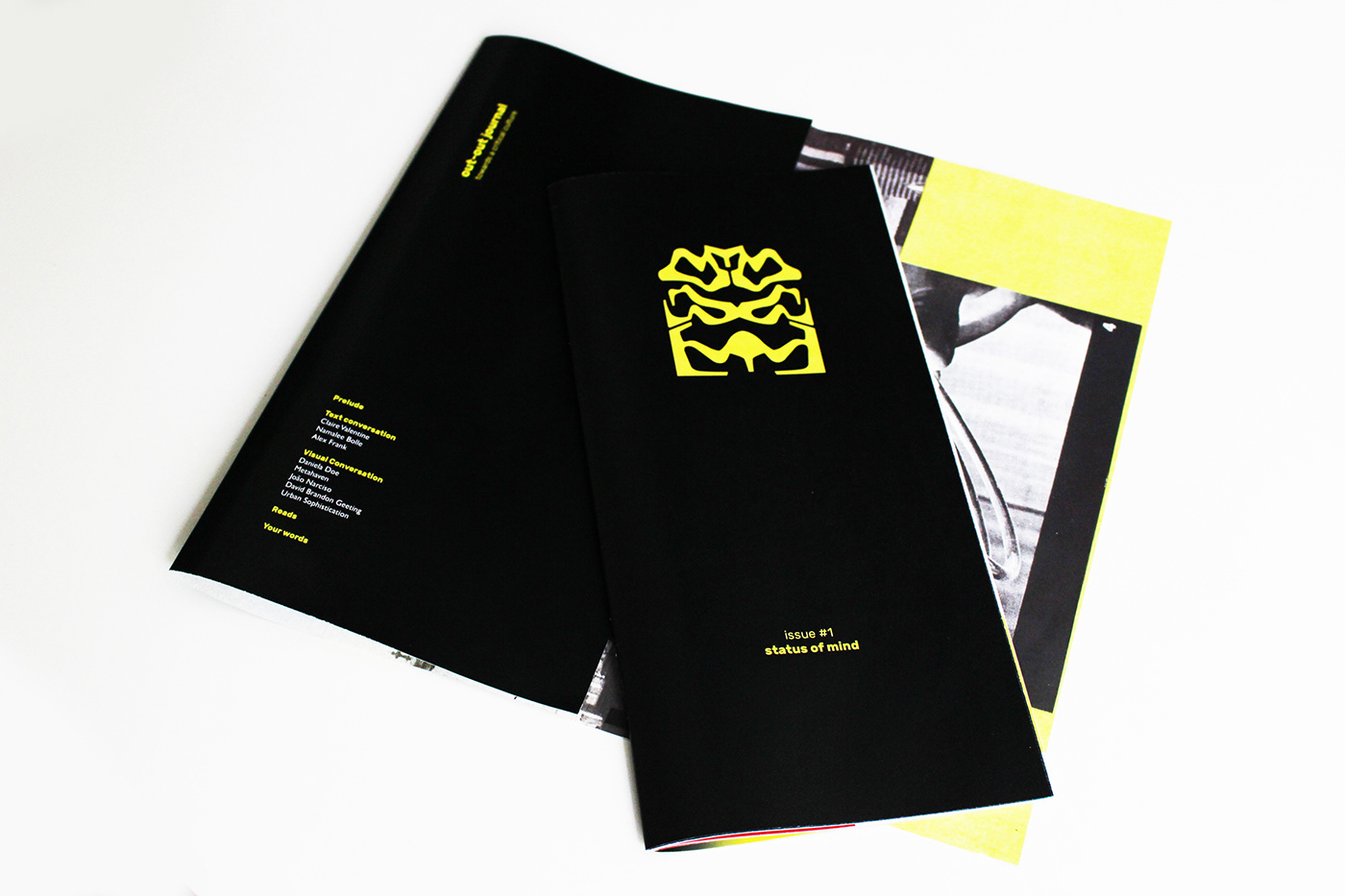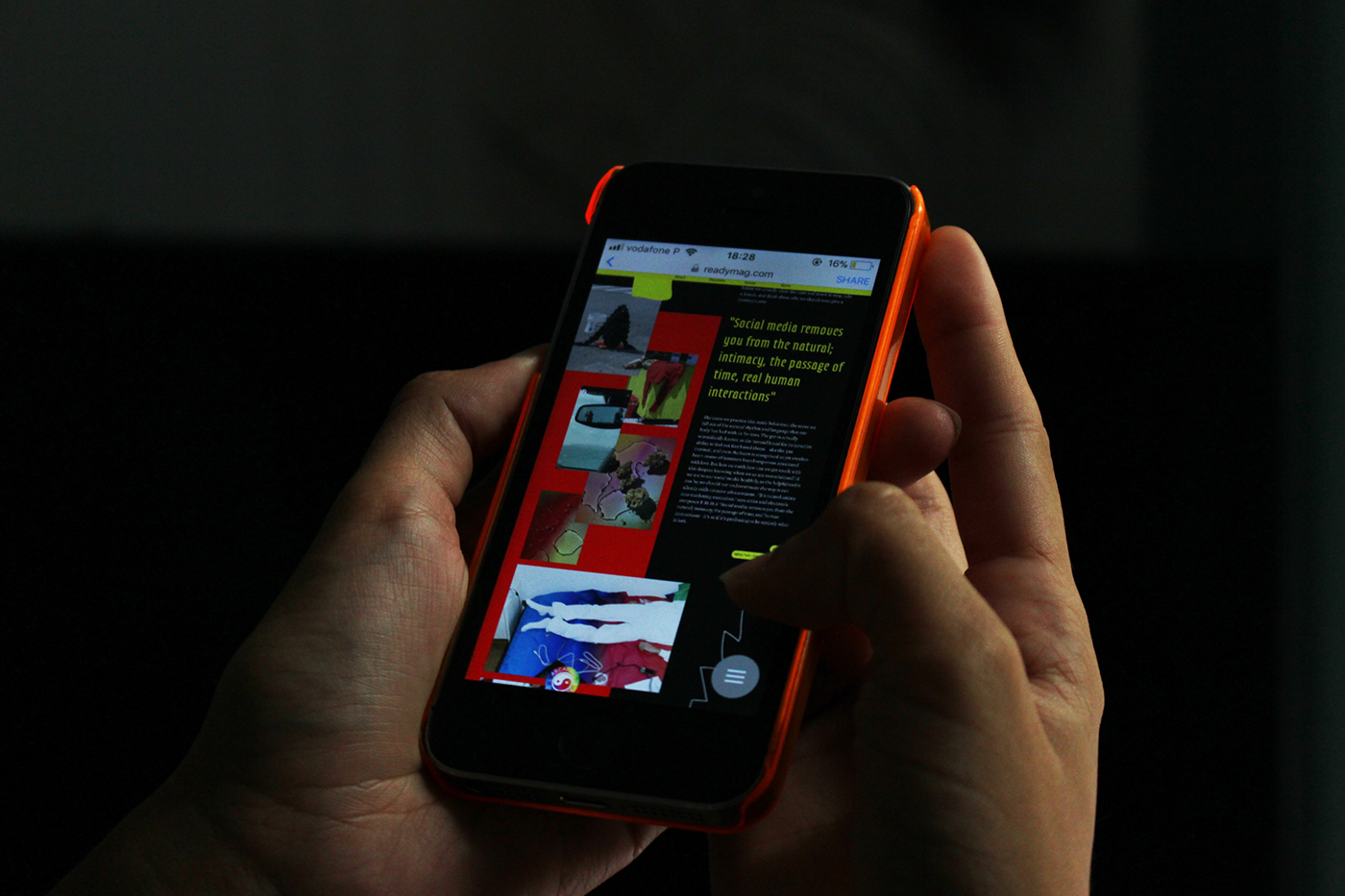
OUT OUT journal (2018)
Editorial Design - Lisbon School of Design
Out Out is a journal of deep thoughts and real opinions arising in the youth subculture ‑ defined by different styles, concerns and interests, that give rise to new expressions and lifestyles developed b z‑generation, in response to dominant systems ‑ which reflects in their attempt to resolve structural contradictions suggested by the larger social context.
The mission of this journal is to present different cultural perspectives and be critical, through visual expression and suggested music, it is intended to capture the current essence of society.
The mission of this journal is to present different cultural perspectives and be critical, through visual expression and suggested music, it is intended to capture the current essence of society.
For this final project, we created our own magazine brand identity, which includes the printed version and the website.





This issue explored how social media has become a space in which we form and build relationships, shape self‑identity, express ourselves, and learn about the world around us. It is intrinsically linked to our mental health.
To accept the argument that screens threaten our very humanness requires that one accepts the premise of an intractable human nature, one built upon a framework of normativity and privilege. Like all claims to human nature, tech critics misunderstand the dynamic human condition and instead operate with a static picture of what is “good” and “right” for social and personal life.
To accept the argument that screens threaten our very humanness requires that one accepts the premise of an intractable human nature, one built upon a framework of normativity and privilege. Like all claims to human nature, tech critics misunderstand the dynamic human condition and instead operate with a static picture of what is “good” and “right” for social and personal life.
Social media is now a part of almost everyone’s life, but not more than our young population of digital natives. It rises to popularity during the mid‑2000s, has revolutionised the way in which we communicate and share information, both as individuals and as a society. Whilst social media has permeated nearly every aspect of the mainstream, we are only just beginning to take stock of the extent to which it impacts our lives. With growing consideration given to the importance of mental health and wellbeing within the health debate, there has never been a more pertinent time to talk about the relationship between social media and mental health. Screen mediation can be an equally important or even life‑saving tool for those who feel (or know) that they cannot openly express their sexual preference, gender identity, religious beliefs, or political propensities because of unaccepting local social networks. For those with contested identities, screens provide a means of commiseration, collaboration, and eventually, collective action, with the potential for social change.
Visit the website simulation here.







